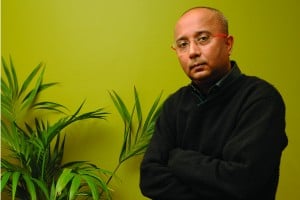Integration is a powerful and graceful animal to watch in motion, but it is also needy and hungry, underlines MCN’s Tom Roychoudhury.
Can integration in our business be reverse engineered? Once you define that what is crucial, absolutely, is the client’s brand, and what benefit you can provide to it from an advertising, marketing, media perspective, making a giant leap, and then taking steps back into realising that leap, may be an innovative, inventive approach to integration.
Integration is not necessarily about a one-stop -solution story. Nor is it about a ‘total solution’ (that bad word from ‘Jargons-2012’ we save for technology sales folks). We need to understand that this is about a holistic approach that offers beginning-to-end (no, not end-to end, that’s again tech) unifying strategy that is made manifest in well-glued expressions and experiences whether it be great creative, superbly crafted media planning, jaw-dropping media buys and equally vocal support from other components like Search, Social and more.
Gestalt, then. That’s the end goal of integration. Where the sum of the parts is greater than the whole. And yes, today, with the shift from traditional to always-on, and the leap into experiences and value addition and consumer being king and queen and UGC jack, all this can be reverse engineered. Because it’s all about the base, as the song goes. And the base is what the process does for the outcome. Where we start with a fluid solution and then find the crucibles that can grind out the ingredients. So, channel-agnostic thinking in the beginning and screen-neutral delivery at the end become synonymous and malleable as ends and beginnings have one purpose. Outcome.
Three models
We’re talking ‘integration’ here as an agency-to-client delivery model. And three models emerge from where I’m looking. The old school ‘One Agency Does It All’ model, and it works well in some cases. That’s how it used to be. And even today I can think of a couple of agencies that operate this way, and they bring a well-rounded offer to the table. All revenues (at the agency) head to one bottom line, no one has to send irate texts, and from planning to execution, it usually gets done in one location. Sometimes separated by stairs. But it gets done, stairs and all.
Then there’s a new school approach to integration where disparate agency brands with a common goal try desperately to work like model one – like the old school one agency model. This has a lot of work involved. You have different interests (well, except the one common goal of winning a new client), different books to keep, different egos to manage, and different OS. This model sometimes works, sometimes totally falls apart. Usually it works when the agencies have some common flag, a feeling of belonging to some kind of a group, some uncle in New York with the same DNA.
Where model two (the one with the uncle in New York) falls apart is usually after the honeymoon. Differences of opinion about bottom lines are as destructive as disagreements on deadlines. Client relationships and interpersonal skills vary because agency cultures vary, and there’s hardly a common denominator holding the ongoing process together. And because people are different, interests are different (other than the one common client) and the uncle in New York is an absentee at meetings.
Interdependence
Then there’s model three. I call this the model of interdependence. Where (usually) the agencies are from a common and identified group. It’s the alignment here that works – OPEC like, towards that common goal – which is supposed to be the end goal of producing outstanding work across all verticals with equal competence and equal flair. This common standard is crucial. A group CEO summed it up when he said: ‘You can’t go in there with three hares and a tortoise’. Guess that’s a hard shell.
Works best, this one, with an umbrella on top – an icon of assurance for the client. This is emerging as a winning formula. When this works, properly, it’s an invention of sorts. Because every player at every level needs to recognise the fluidity of process, and recognise the pampas-like level of the playing field, and have a self-policed adherence on a blanket ban on egos. All for one common good. The outcome.
Integration works across different agency models and specialisations. Today, when we talk about the consumer being the centre of our universe, and experience being his sceptre, it can bring multiple facts of our industry together – all for one purpose. The what (creative), the where (media agency), at which touch points effectively (media again), amplifying it (the PR agency), spreading it (social), feeding the curiosity (search) are all important journey touch points that can be integrated as one for the client. And, ideally, which client wouldn’t want that? If it ticked all his check boxes? Specially the financial ones?
Blurring lines
Frankly, it’s becoming easier with this world going digital. With agencies all trying harder to be better at digital, lines are being blurred. There’s a better understanding of each other’s specialisations because there’s a lot of commonalities, and of course, of how being interdependent to win and retain a client’s business is better than independently doing half a slice of it.
What’s key here in the third model – the one of glorious interdependence – is the glue. Not the sticky mess of discordance forced together out of financially motivated experimentation, but the synergistic, orchestrated magic of
harmony of genuinely producing a great result. Sometimes a group leader (a group CEO, for instance) holds the key to this magic. Sometimes it is an innovative ‘integration engineer’ who can add one and one and get eleven. But it needs direction, motivation, sometimes a pull, and often a push. This integration is a powerful, graceful animal to watch in motion, but it is a needy, hungry animal, at the same time.
And this animal, in my view, will play a key role in defining 2015.
(Tom Roychoudhury is chief innovations officer at MCN Holding. This article appears in the #Predictions issue of Campaign Middle East dated 11 January 2015.)










